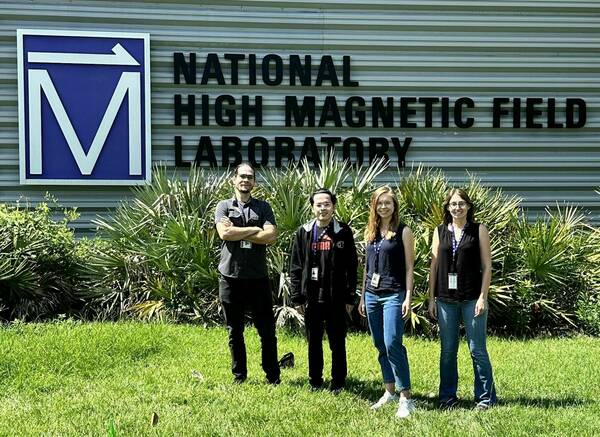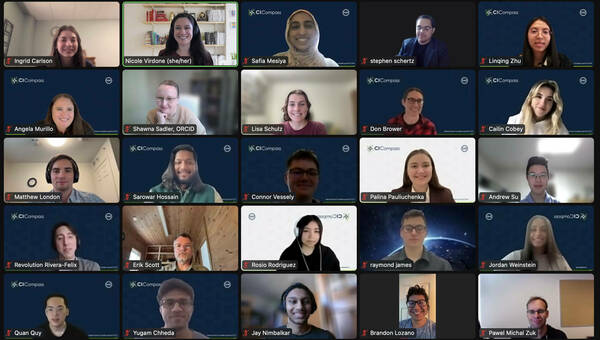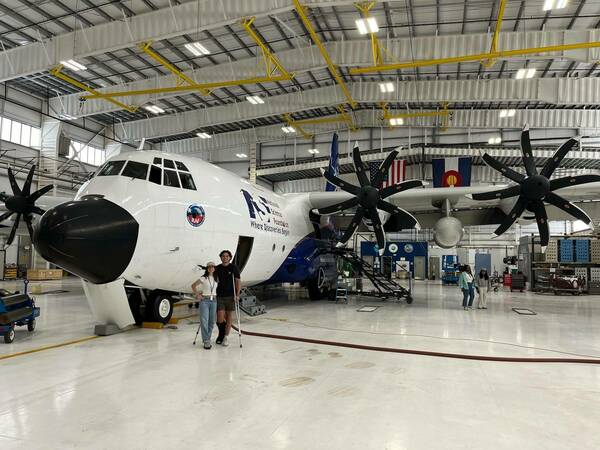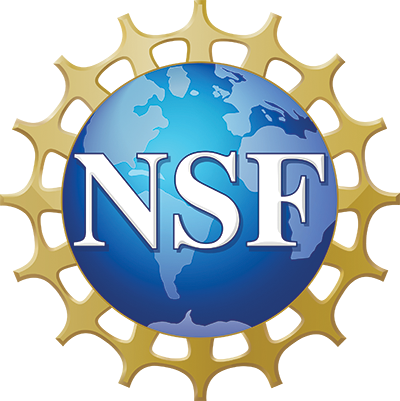Student Fellowships
CI Compass Fellowship Program (CICF) for Undergraduates
Students Fellows in CICF learn about real-world cyberinfrastructure challenges, and how to begin solving them for U.S. NSF Major Facilities

NSF CI Compass, the U.S. National Science Foundation (NSF) Cyberinfrastructure Center of Excellence, offers a distinctive Fellowship Program for undergraduate students pursuing studies in computer science, information science, data science, applied mathematics and statistics, embedded systems, communications, social sciences related to cyberinfrastructure, and other related fields.
Cyberinfrastructure, or CI, encompasses computing systems, data storage systems, advanced instruments, and data repositories, visualization environments, and people all linked together by software and high-performance networks to improve research productivity and enable breakthroughs otherwise not possible.1
The program provides Student Fellows the opportunity to:
- Learn about CI development and Major/Mid-Scale Facilities (MFs).
- Develop CI-related skill sets that are important to the work of MFs.
- Engage with CI Compass and MF personnel.
CICF is open to all undergraduate students in the United States.
Use the menu available at the top left of the image to sort through the years of the CICF program to see the variety of colleges and institutions our Fellows come from.
CICF Spring Program

During the academic Spring Program, Student Fellows participate in a virtual training program with CI Compass. This Spring Program has two components, 1) a Technical Skills Component and 2) a Data Lifecycle Component.
The technical skills component of the Spring Program provides Student Fellows with experience in technical skills relevant to cyberinfrastructure (i.e., software engineering, cloud computing, data workflows, etc.). Click here for an example syllabus for the Spring Program.
The data lifecycle component provides Student Fellows with contextual understanding of the MFs and related cyberinfrastructure through learning about the data lifecycle of specific MFs and engaging with guest speakers from MFs and the greater cyberinfrastructure community. In groups, Student Fellows research a specific MF to learn about its science mission, cyberinfrastructure, and data lifecycle, then present their research findings at the end of the Spring Program.
“Many of these scientific discoveries would never happen without cyberinfrastructure so, seeing the gleam in the student’s eyes when they see this connection between what they learn with classroom and how it can be applied to something that is impactful, that's very rewarding.” says Ewa Deelman, CI Compass PI.
Check out the 2025 CICF Syllabus here: 2025 CICF Syllabus
Applications for the 2026 CICF Spring Program are now closed.
If you would like updates on the 2027 CICF Spring Program, please fill out the Interest Form Here
CICF is free to the Student Fellows, and may be taken for course credit depending on their institution's requirements. Additionally, CI Compass Student Fellows will be provided up to a $1,200 travel reimbursement to attend a computing-related domestic conference of their choice (restrictions may apply).
Summer Program Opportunities

Student Fellows have the option to apply for the Summer Program, which provides potential hands-on project-based learning experience at either an MF or a NSF CI Compass institution. During the Spring Program, the CICF team will provide information and guidance on these potential Summer Program opportunities, as well as the opportunity to network and make connections with MF colleagues. While participation in CICF provides Student Fellows an advantage, the Summer Program is not guaranteed and requires an additional application process, which takes place during the Spring Program and is only open to Spring Program Student Fellows.
Details of the specific projects will vary, based on the institution’s needs. Student Fellows invited to participate in a summer project will be given a $720/week stipend. Student Fellows are expected to work 40 hours a week during their summer project. Programs range from 6-10 weeks. Some are in-person and others are remote.
Need more information?
The CI Compass Fellowship Program is directed by Angela Murillo, Director of CICF and Nicole Virdone, CI Compass Director of Outreach. For more information on the program, please email cicf@ci-compass.org.
Applications for the 2026 CICF Spring Program are now closed.
1 Stewart, C.A., Sims, S., Plale, B., Link, M., Hancock, D.Y., and Fox, G.C. (2010). What is Cyberinfrastructure? Proceedings for SIGUCCS’10. Norfolk, Virginia.






